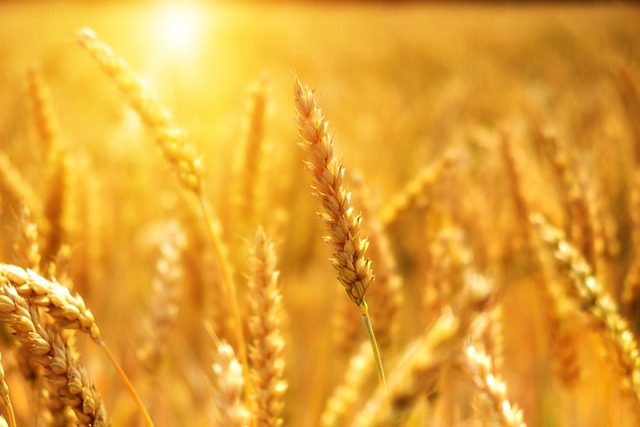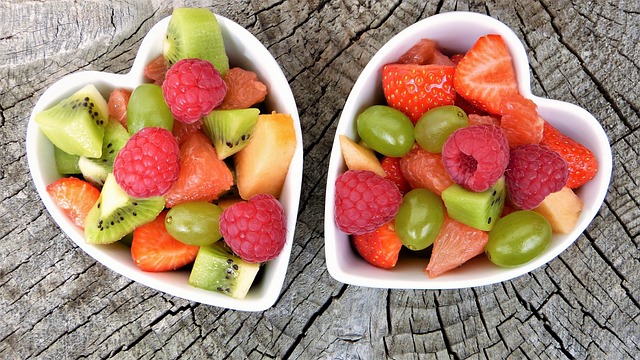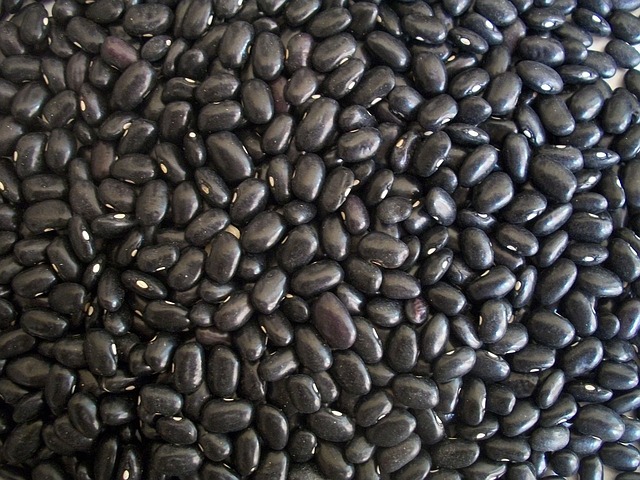If you are following the keto diet, it is important to understand which foods you should avoid. The ketogenic diet is a low-carb, high-fat diet that helps to promote weight loss and can result in many health benefits.
Unfortunately, some foods are not allowed on the keto diet and can easily derail your progress. Therefore, it is important to keep in mind which foods you should avoid while on the keto diet.
The foods in the list below are ones that you should avoid on the keto diet for optimal success:
1. Grains: All grains, including wheat, rice, oats, and quinoa, are high in carbs, making them a no-no on the keto diet. Whole grains are also high in fiber, which can increase hunger and cravings, so it is best to stay away from them while following the keto diet.
2. Legumes: Legumes, such as peas, beans, and lentils, are not allowed on the keto diet because they are high in carbs and low in fat. In addition, legumes contain lectins and phytic acid, which can be difficult for some people to digest.
3. Sugar: Added sugars, including table sugar, honey, and agave nectar, are high in carbs and should be avoided on the keto diet. Natural sweeteners, such as stevia and monk fruit, can be used in small amounts but should still be avoided in high amounts.
4. Potatoes: Potatoes, including sweet potatoes, should be avoided on the keto diet because they are high in carbs and offer very little fat. If you are looking for a starchy vegetable alternative, turnips and rutabaga are lower in carbs and can be enjoyed in moderation.
5. Most fruits: Fruits, such as apples, bananas, and oranges are high in carbs and should be avoided on the keto diet. Low-carb fruits, such as raspberries, blackberries, and strawberries, can be enjoyed in small amounts.
Lets look at some in more detail that you should avoid and why, and also examples where ceratin foods are actually acceptable on the keto diet.
Highly Processed Foods
The keto diet is popular for its ability to help people achieve their weight loss goals. It requires a drastic reduction in carbohydrate intake and a shift to consuming healthy fats and proteins.
However, many people on the keto diet feel limited by the restrictions and worry about not getting enough variety in their diet.
Fortunately, for those following the keto diet, there are a variety of highly processed foods that can provide a wide range of flavors and textures to help you stay on track.
Highly processed foods like bacon, sausage, and hot dogs are considered to be fair game on the keto diet. These meats are high in fat and low in carbohydrates, making them an ideal choice if you’re trying to stay in ketosis.
Bacon and sausage can easily be added to salads, omelettes, and stir-fries to give a quick and easy boost to your meal. Hot dogs are also a great option and can be consumed as-is, or grilled and served on a bun.
Cheese is another highly processed food that’s allowed on the keto diet. Cheese is high in healthy fats and low in carbohydrates, making it an easy way to add flavor to salads, omelettes, sauces, and more.
High-fat and low-carb varieties of cheese such as mozzarella, Swiss, cheddar, blue cheese, and goat cheese are all excellent choices for the keto diet.
Butter is also a highly processed food that can be used to add flavor and texture to dishes. Butter is high in saturated fats, making it a great alternative to traditional cooking oils. It’s also easy to incorporate into meals, as it can be used to sauté vegetables, add flavor to sauces, and give baked goods a rich texture.
Finally, cream cheese is another highly processed food that’s allowed on the keto diet. Cream cheese is high in fat and low in carbohydrates, making it a great option for spreading on keto-friendly bread, or using in sauces, dips, and desserts.
Grains or Starches
When it comes to the keto diet, grains and starches are strictly off limits. That’s because grains, like wheat, barley, and corn, are loaded with carbs that can quickly derail your progress. This is especially true if you’re trying to get into ketosis, a metabolic state that burns fat for fuel.
Fortunately, there are plenty of other starchy foods you can enjoy on the keto diet. These choices are often a healthier alternative to traditionally starchy grains and are much lower in carbs.
One of the healthiest and most delicious keto-friendly carbs around is cauliflower. It’s a versatile vegetable that can be used in a number of recipes that can be enjoyed while on the keto diet. Cauliflower is great roasted, mashed or made into a perfect “rice” substitute.
Another great option is spaghetti squash. When cooked and shredded, it has a pasta-like texture that makes it perfect for a number of dishes. You can try roasting it and topping with a tomato sauce or even slicing it in half, stuffing it with your favorite ingredients and baking it.

Another great source of carbohydrates on the keto diet are nuts and seeds. Although they’re higher in fat than other grains, nuts and seeds are an excellent source of healthy polyunsaturated fats.
They also have a variety of vitamins, minerals and fiber that can help you meet your nutritional needs on the keto diet.
Finally, one of the best sources of keto-friendly starch is sweet potatoes. Sweet potatoes are a relatively low-carb choice that offers a host of health benefits.
They’re a great source of vitamin A and magnesium and can be used in a variety of dishes. You can try slicing them into fries, roasting them, or using them as the base for a savory breakfast bowl.
No matter what you’re looking for, these keto-friendly grain and starch alternatives can help you stay on track with your keto diet. Try experimenting with different recipes to find the ones that work best for you.
Fruit
When it comes to following the keto diet, one of the main goals is to reduce carbohydrate intake. This means that the foods you choose to eat should be low in carbohydrates.
Fortunately, fruit can still be enjoyed on a keto diet, as long as you understand which fruits are best for ketosis.
First and foremost, it is important to keep your consumption of fruit to a minimum. Too much fruit can kick you out of the keto state, as they can be sugary and contain a lot of carbohydrates.
That said, some fruits, such as avocados, olives, and berries, are low in carbs and can be eaten in moderation on the keto diet.

fruit
Berries such as strawberries, blueberries, and blackberries are some of the best fruits for keto as they are low in carbs and full of antioxidants. A handful of these berries can provide a flavorful snack without throwing off your macronutrient goals.
Avocados are another great source of healthy fats and contain minimal amounts of carbohydrates. Enjoy an avocado as a nutritious and filling snack, or add it to your favorite dishes to make them a bit more keto-friendly.
Olives are another great fruit for the keto diet. Olives are rich in dietary fiber, healthy fats, and antioxidants, making them a great addition to a keto diet. Enjoy olives in salads, as a snack, or mixed into your favorite dishes.
Finally, raspberries are a slightly sweeter option that can be enjoyed on the keto diet. Raspberries are full of antioxidants, low in carbs, and make a great snack or topping for your favorite dishes.
In summary, while fruit can be enjoyed in moderation on a keto diet, it is important to remember that some fruits are much better than others.
Avocados, olives, berries, and raspberries are all great options that are low in carbs and full of nutrients. Enjoy these fruits in moderation as part of a healthy and balanced keto diet.
Beans or Legumes
Beans and legumes are an important source of nutrition for those following the keto diet. Although beans and legumes are typically high in carbohydrates, they are an excellent source of plant-based proteins, fiber, and vital micronutrients.
However, due to their carbohydrate content, they can be difficult to fit into the keto diet plan.
In general, legumes are not recommended on the keto diet, as their high carbohydrate content can quickly push you over your daily carb limit.
However, there are a few legumes that can be incorporated into a ketogenic diet. These include black beans, pinto beans, white beans, and lentils. Black beans are the most popular of these legumes and are a good source of plant-based proteins and fiber.

Pinto beans, white beans, and lentils are all lower in carbohydrates, making them a more suitable choice for the keto diet.
Beans are a great source of plant-based proteins and fiber, so they can be a beneficial addition to your diet. However, due to their carbohydrate content, it is important to only consume them in moderation.
Small amounts of black beans, pinto beans, white beans, and lentils are acceptable on the ketogenic diet, but it is important to count them as part of your daily carb limit.
In summary, beans and legumes can be included in the keto diet in small amounts. Black beans, pinto beans, white beans, and lentils are all generally accepted as part of the ketogenic diet, but it is important to keep track of carb counts and to stick to small servings.
Beans and legumes are an excellent source of plant-based proteins and fiber and can be a beneficial addition to the keto diet in moderation.
